Raspberry variety Polka (Polka)
Now in the world, and in our country, there is a huge number of remontant varieties of raspberries and every season more and more new ones appear. Someone embarks on endless experiments with these new products, and someone from year to year does not change one or two proven "workhorses". Well, and some, and we believe this is the most correct thing, do not abandon the old and proven, while gradually testing newcomers for "professional suitability." You can argue endlessly, but there are those varieties that become reference and with which others are compared in terms of various indicators, and are also used in breeding for breeding the same new products. And from year to year they bring their owners a good income and just the joy of owning them, generously endowing with delicious berries. One of these is the Polish repairman Polka.
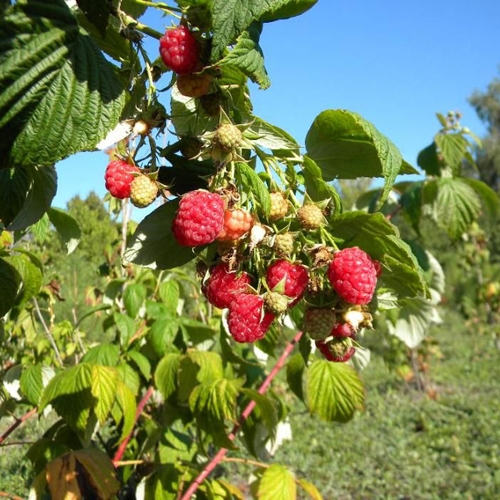
History of creation
This remontant was obtained from a Polish institute called Sadowniczym Zakładzie Doświadczalnym Instytutu Sadownictwa i Kwiaciarstwa in Brzezno. It was bred by the world famous breeder Dr. Jan Danek in 1993, crossing raspberries Autumn Bliss, which by the way is also one of the parents of another reference remontant - Zyugana, and numbered grade P89 141. In the same institute, in subsequent years, it will be bred many other excellent varieties of raspberries.

Description
The regiment is the most common remontant in Poland, and probably one of the most widespread in the world, which has become a reference. He became the winner of various exhibitions more than once and was repeatedly recognized as the best. In many parts of Europe, it is grown under cover as a dessert berry. In Poland, it is mainly cultivated in an open field for mechanized harvesting using special berry harvesters. The variety is currently the EU standard for remontant varieties.

Raspberries bear fruit mainly on the shoots of the current year, so there is no point in leaving the stems for repeated summer fruiting. Ripening at Polka is one of the earliest in its class, slightly extended - from the end of July in the southern regions to November. In general, about three months. The plant is characterized by medium growth, the height of the stems is 1.5-1.8 meters. Shoots are compact, green with a bluish bloom, covered with small thorns. The leaves are oval, dark green, covered with fine hairs below. Shoot-forming ability is good, gives a lot of root growth, which is certainly a plus for growing seedlings, but requires extra effort when caring for plants.
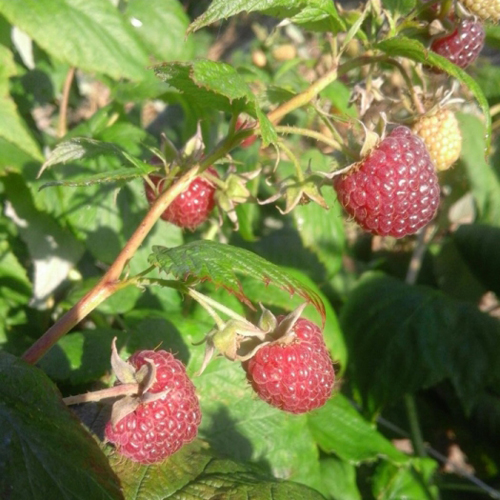
Fruits are medium-large and large, even, elongated-conical, deep red, burgundy, shiny, dense, but with juicy refreshing pulp. May darken after collection. Drupes are small, well interconnected. One of the undisputed advantages of the Shelf is the excellent taste of berries, sweet, with a characteristic raspberry aroma. As the people who try it say - "the taste of raspberries from childhood." Brix tests showed that the share of sugar in fruits averages 11.7%, versus 10.3% for Tulamin berries, for example. The fruits are easily removed when picked, with a dry separation, when overripe, they do not crumble from the bush, in the main they are covered with leaves, but they can be baked in the summer sun. But they can withstand frosts of two to three degrees. The shelf has excellent transportability and keeping quality of the fruit; the berry does not flow during transportation. The variety is resistant to major raspberry diseases other than root cancer.
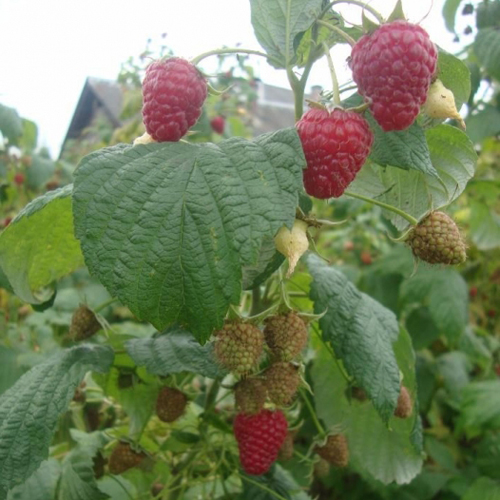
Interestingly, according to Jan Danek (the author of the variety), the average weight of the berries is 3.2-3.6 grams and the yield is 8-9 tons per hectare. And according to the results of tests of the experimental station in Tongeren (Belgium), the yield was 2.5 kg per bush and, accordingly, up to 20 t / ha indoors, subject to all the necessary growing conditions. And the average weight of fruits reaches 6.6 grams in the first samples. This data is provided by Hargreaves Plants, which has exclusive distribution rights since 2003 in the UK and many other countries, including North and South America.But already in the project of the Polish factory Malinowe in 2016, the harvest began on July 13. The average productivity of raspberries from 1 bush was 3.1 kg, and the total productivity was more than 25 t / ha.
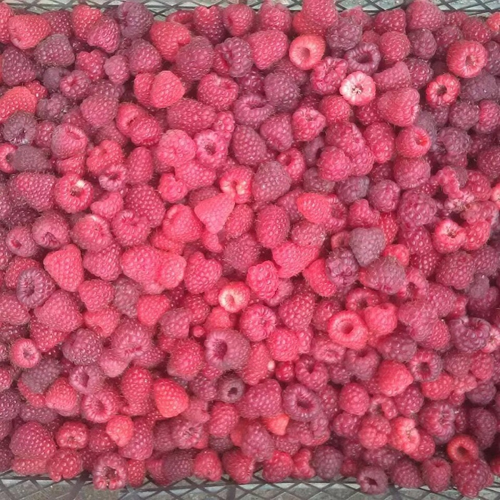
And this is not fiction, there are a lot of berries hanging on the bush, gardeners in our country have an average weight of the Shelf berries of 5-6 grams. One of the conditions for achieving good results is regular provision of moisture, since the variety has problems with drought tolerance, and mulching of the root zone is also desirable. Plantations need to be exploited for an average of 5 years, a maximum of 7, then the productivity drops and there is a great danger of plant disease with root cancer, to which they are not at all resistant.
I would like to add one more thing - in our country, many people still confuse the names Polka (Polka) and Polana (Polyana), thinking that they are one and the same thing. These are completely different names for two different varieties. Polana is also a good raspberry, bred in Brzezno, more productive, but with much worse taste and a later ripening period.
So, to summarize, what causes such sympathy for our heroine all over the world? First of all, this is the ability to work productively in open ground and early ripening. And of course, the excellent quality of the fruits, their size, sweetness and wonderful taste, good yield and excellent market indicators, plus relative simplicity in growing.
Author: Maxim Zarechny.
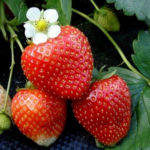
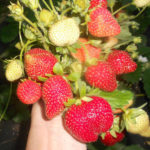
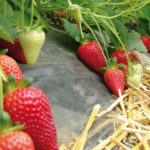
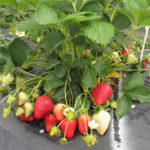
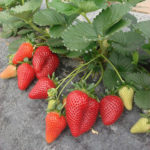
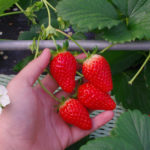



I have been growing Polka for the second year. Great raspberries! Of the nine remontant varieties that I have, this one is the best.
Thanks to Polish breeders!
Just a couple of years ago, they were planted. An excellent berry with a great taste. We haven't collected a lot so far, just "for a meal." The berry is large, red, and the smell is heard a mile away. In our area wintered well. We bought it in a special store, planted it in the shade (instead of a fence).
A wonderful variety, one of the best that I have tried to grow. When I finally got accustomed to the Regiment, I removed the rest of the bushes. I like that it does not ripen at the same time, you can feast on delicious raspberries for a couple of months. The raspberry-tree is a favorite place for the grandchildren on the plot. True, watering loves good, I use drip and during the entire heat period I practically do not turn off the tap. The berry is large, beautiful and very tasty. The bushes are resistant, do not bend to the ground, I hardly use a trellis. Our soil is poor, so I bring in abundant autumn dressing - rotted manure. I'm happy with the variety, I advise everyone.